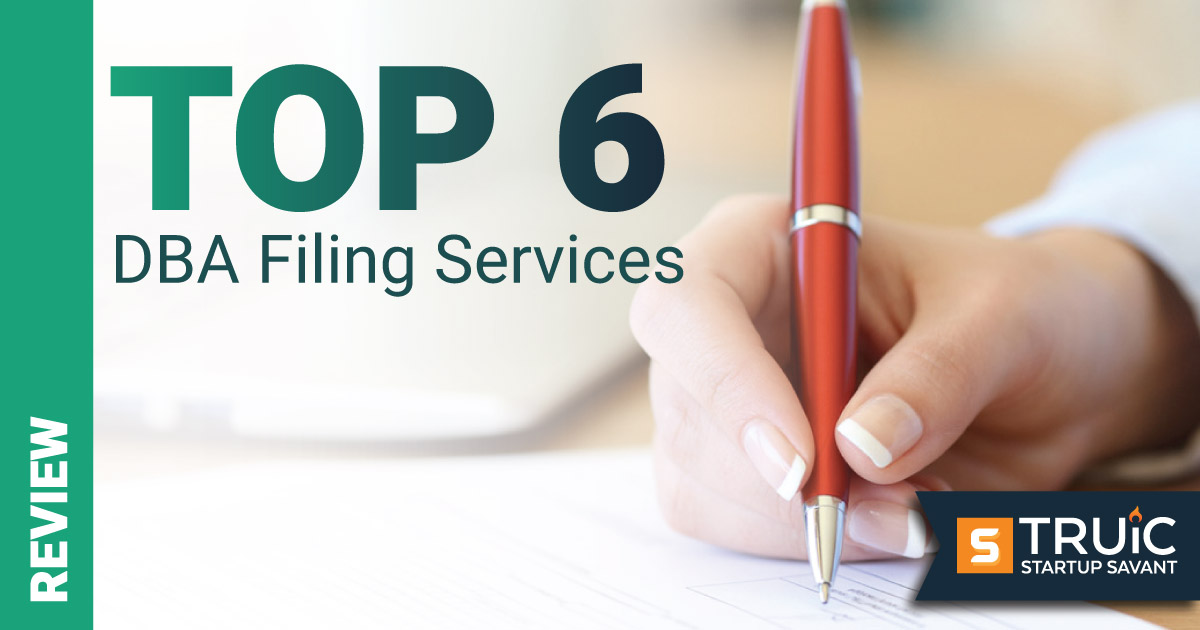There are plenty of reasons why getting a DBA might be a good choice for your business. We put together all the information here to help you make the best decision. If you decide to set-up your DBA, we have a step-by-step guide for that too.
If you’d like to learn more about DBAs before diving into this article, read our What is a DBA article.
Why Create a DBA for your Business?
![]()
Branding and Marketing
Whether your business is a sole proprietorship, partnership, LLC, or corporation, getting a DBA can make it easier to create or build a particular brand. If you have a strong brand already, or there is a developing one you’d like to focus on, a DBA can make this name more visible to consumers and allow you to tailor a marketing strategy to it.
This can be useful if your business offers multiple distinct products or services. If one of these becomes especially popular, a DBA can help you highlight it even more. And, if there are other products or brands down the road that you would like to market, you can create a separate DBA for each one.
To learn more about business branding and naming your business, read How to Name Your LLC.
Sole Proprietorship and Partnership Benefits
If you’re operating a sole proprietorship or partnership, choosing a DBA name for your business can make it easier to market your company and attract more customers.
For example, if you start a consulting firm, you’ll probably have more success with a business name like “Expert Consulting” than you would by calling the business “Sarah Smith.” A DBA name makes your company sound more professional, trustworthy, and memorable to potential customers.
From a legal standpoint, you almost always need to register a name you are using that isn’t your legal name. You will also need to legally register the name in order to open a business bank account for your DBA or add your business listing to certain directories.
Some states require all partnerships to create a DBA. To learn more about your state’s laws, visit our state DBA guides.
Limitations of a DBA
There aren’t any significant disadvantages to using a DBA but there are limitations to a DBA that you should be aware of.
Unlike an LLC or corporation, a DBA is not a separate entity. This means that it does not provide any additional liability protection. If you are operating a sole proprietorship, you will still be held personally financially responsible for any debts your business incurs, even if it is operating under a DBA.
If you have an LLC or corporation that is using a DBA, your business as a whole would also be liable for the DBA operating as part of it.
While there are laws in many states that prevent your DBA name from being used by other businesses, this protection typically only exists within the state’s borders. Beyond this, you would have to file for a trademark to keep other businesses from using the same name.
To learn more about DBA limitations in your state, visit our state DBA guides.
How to Set Up a DBA
In most states, setting up and maintaining your DBA will be easy. Our state-specific DBA guides make setting up your DBA simple. You can also check out our review of the best DBA filing services.
Frequently Asked Questions
What does DBA mean?
DBA is an acronym for “doing business as”. In some states, a DBA might be called a fictitious name, trade name, or assumed name. To the point, a DBA is essentially a nickname for your company, and there are plenty of good reasons to use one.
When does a DBA expire?
This depends on your state. Each state has its own set of rules. Your DBA could expire after a number of years or be valid indefinitely. Check your state’s specific regulations to see how long your DBA will be valid.
How many DBAs can I have?
You can have as many DBAs as you can afford to create and are able to keep track of. However, more isn’t necessarily better. Each one will come with additional incremental expense and paperwork, so you will want to make sure you have a good reason for each one.
How much does a DBA cost?
While generally relatively affordable, the cost of forming a DBA varies from state to state. Check out our state DBA guides to see the potential costs in your business’ home state.
When would it be good to do a DBA versus a legal name change?
Getting a DBA is often a better choice than changing your business’ legal name. If you are simply interested in rebranding your company or focusing on another line of business, filing for a DBA is a much simpler process than filing for a legal name change.
How can I add a DBA to an LLC?
The process of adding a DBA to an LLC can vary slightly from state to state. Check out our state DBA guides to find the information that is relevant to your business.
Is my DBA protected from being used in other places?
There are some state-level laws that prevent DBAs that are too similar to existing ones from being used, but this varies from state to state. It is possible to trademark a DBA, which would offer stronger protection across state lines.
When is a DBA required in my State?
If you are operating a sole proprietorship, you will need a DBA in order to open a business bank account or accept payments in a name other than your legal name. If you have an LLC or a corporation, you will likely need a DBA if you want to conduct business under a name other than the one you already registered.
These rules can vary by state. Check out our state DBA guides to see what the regulations are in your business’ home state.
Can a DBA get an EIN or Tax ID?
DBAs aren’t required to have a separate EIN because DBAs aren’t a business entity. The business entity that the DBA is under would have an EIN if an EIN is required. To learn more about EINs and when you would need one for your business, read What is An EIN from our friends at TRUiC.
How do you set up a DBA for a rental property?
It’s always best to consult an attorney. Usually, the best option is to form an LLC to protect your personal assets in the event of an issue with the rental property. Holding the rental property in your name and with a DBA will not protect your personal assets in the event of a lawsuit.
To learn how to form an LLC, visit our Form an LLC state guides.
Can a DBA become an LLC?
Your DBA is just a name. A DBA is often confused with a sole proprietorship. If you mean “can my sole proprietorship become an LLC?” then the answer is “Yes. Absolutely.”
To learn how to form an LLC, visit our Form an LLC state guides.



